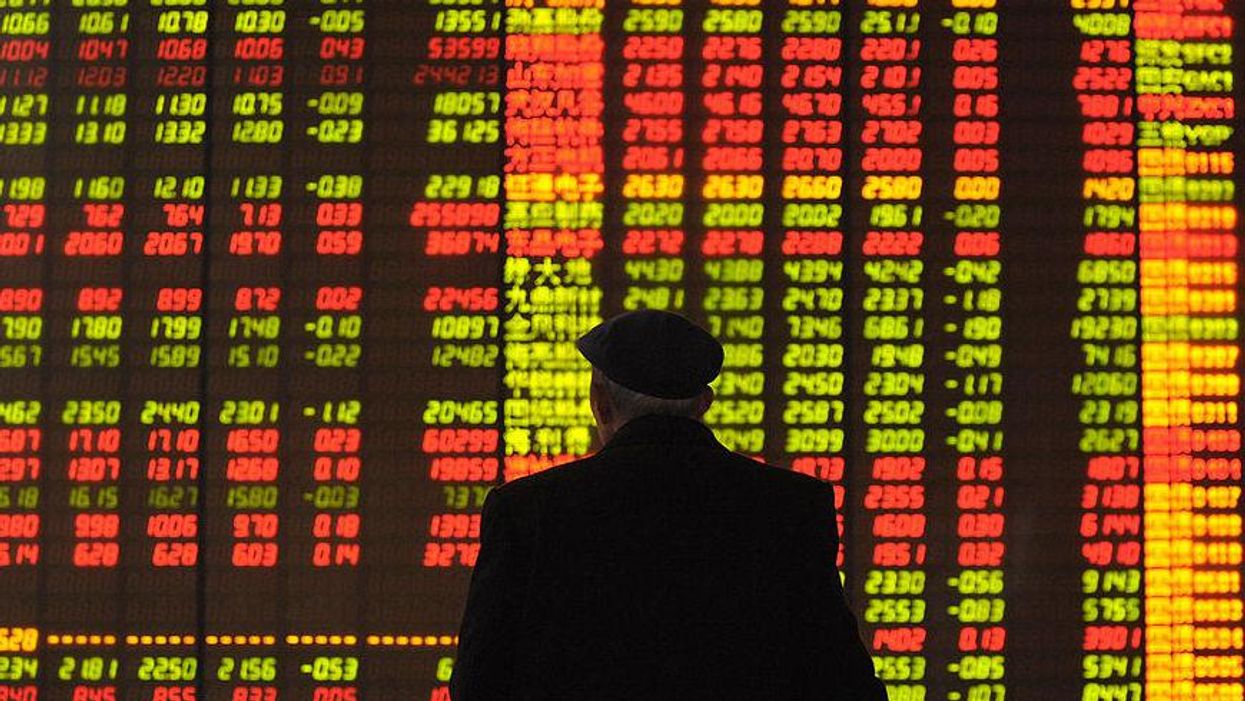
LIU JIN/AFP via Getty Images

Top economists are warning Americans to brace for several years of high inflation at rates not seen in decades.
Inflation, of course, means the reduction of purchasing power for every dollar in your pocket — and it's coming lightning quick.
"The Fed's preferred inflation gauge — the overall PCE index, which includes food and energy prices — rose 3.9% in May, nearly double the central bank's 2% target," the Wall Street Journal reported.
The Wall Street Journal recently spoke to several prominent economists who relayed a grim forecast about the near future of the American economy.
In fact, they're predicting that inflation will rise to levels not seen since the early 1990s — and expectations have worsened since April.
From WSJ:
The respondents on average now expect a widely followed measure of inflation, which excludes volatile food and energy components, to be up 3.2% in the fourth quarter of 2021 from a year before. They forecast the annual rise to recede to slightly less than 2.3% a year in 2022 and 2023. That would mean an average annual increase of 2.58% from 2021 through 2023, putting inflation at levels last seen in 1993.
"We are transitioning to a higher period of inflation and interest rates than we've had over the last 20 years," Joel Naroff, chief economist at Naroff Economics LLC, said.
"Inflation is expected to surge longer and longer — longer than the Fed previously thought," Diane Swonk, chief economist at Grant Thornton, explained. "The Fed is now likely to raise rates in the first half of 2023, although some Fed presidents will be nipping at the bit to move sooner."
Kevin Swift, chief economist at the American Chemistry Council, meanwhile, told the Journal there is a danger "that monetary authorities are behind the curve."
"I'm not saying hyperinflation is around the corner, just that a lot of things have come together in the last year, and the overall trend of costs across the board is growing faster than in the last five or 10 years," Swift warned.
According to the Journal, the Fed blames hiring shortages and shortages of raw materials for the inflation, as well as "largely transitory factors" related to the American economy's resurgence from the COVID-19 pandemic.
However, Larry Summers — who served as treasury secretary under Bill Clinton and director of the National Economic Council under Barack Obama — believes something else is contributing to rapid inflation.
In a recent interview with PBS, Summers blamed President Joe Biden's policies for treating the American economy as if it were still at the height of the pandemic.
"The main risk is that our economy's going to overheat," he said. "And then once it overheats, it's going to be hard to put out the fire without doing a lot of damage and causing a lot of problems."
"If you looked at how the economy was coming into this year, we had total wages and salaries coming to people were 20 or 30 billion dollars a month lower because many of them had to be home because of COVID and the economy was slowed," Summers explained. "But we put in a stimulus that was putting into the economy more than 200 billion dollars a month. And so when you take a hole and you overfill it, you're likely to have problems."